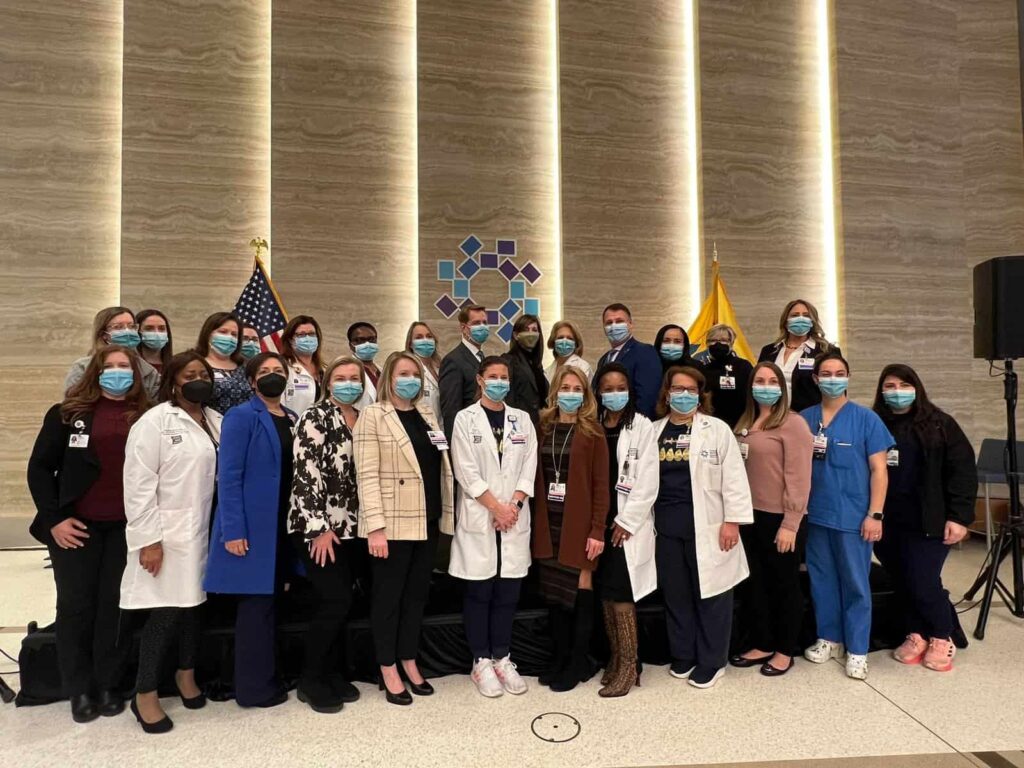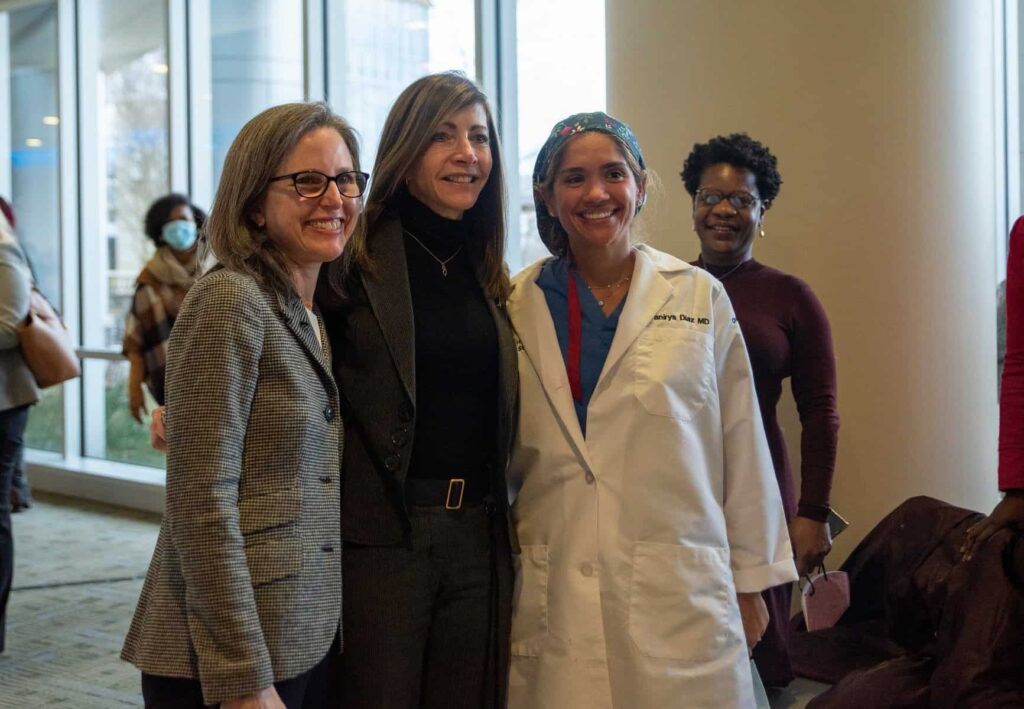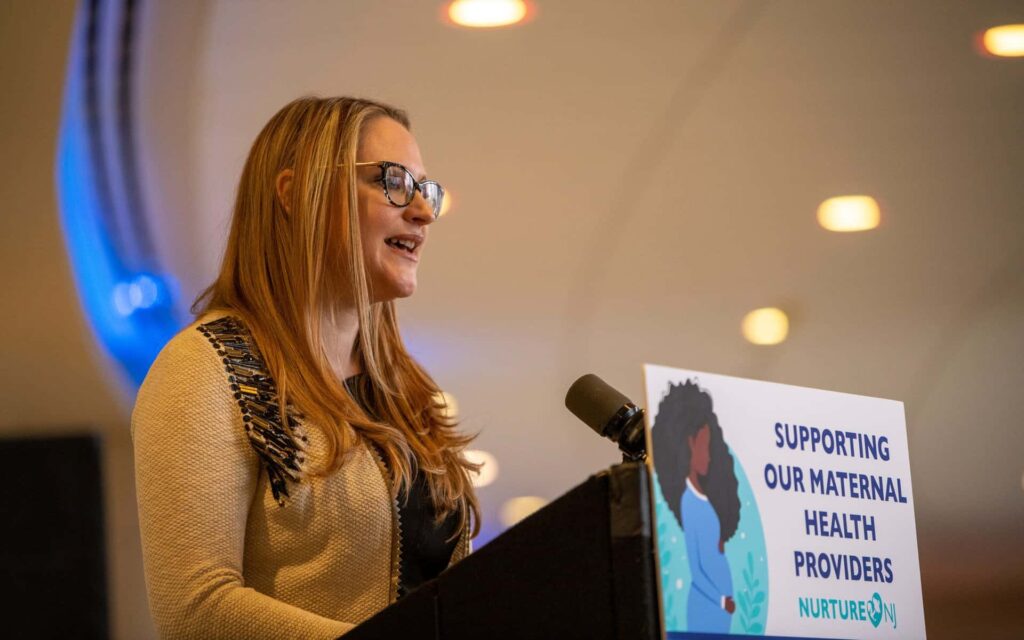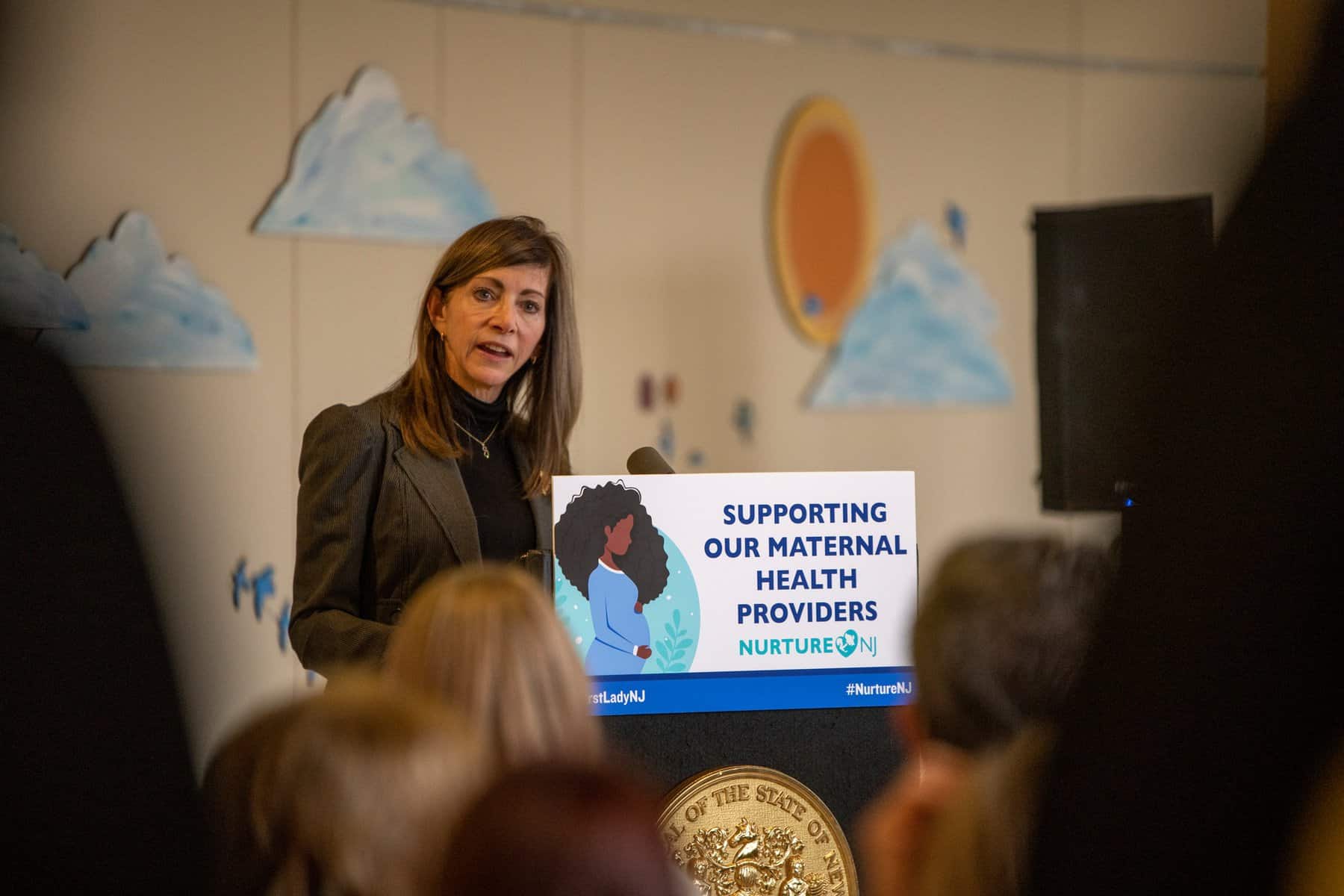NJ FamilyCare is increasing reimbursement rates for perinatal, midwifery and community doula care with $30 million from state and federal funding.
First Lady Tammy Murphy and Human Services Commissioner Sarah Adelman announced the funding to address childbirth, maternal mortality, and racial disparities in childbirth on Jan. 31 at Capital Health Medical Center in Hopewell Township.

The increases are retroactively effective as of July 1, 2022 and made possible by $15 million appropriated in the most recent state budget – matched by $15 million in federal funding – and federal approvals secured by Human Services for NJ FamilyCare, which is the state’s Medicaid and CHIP (Children’s Health Insurance) program.
NJ FamilyCare covers approximately 30,000 New Jersey births each year, or about 30% of births in the state, according to officials.
“This will more than double the reimbursement for an OB-GYN or midwife from $300 to $861.70 for a natural delivery matching 100% of what Medicare reimburses,” Murphy said.
“This increase in funding is a direct representation of our values both for the work of maternal care providers and lives of our mothers and babies.”
Dr. Yanirys Diaz, an OB-GYN physician at Capital Health, said she “cannot stress how important it is to receive quality care throughout pregnancy, during labor, during delivery and postpartum.”
“I know how critical it is to have this care for our lower income status communities,” she said.

With the announcement, reimbursement rates for physicians and midwives will match 100% of current Medicare rates for certain maternity-related services. This increases from 50%.
All midwives will receive the same reimbursement rate as physicians for all covered services. This includes midwifery care outside of maternity-related care, such as routine gynecological care, according to officials.
Additionally, community doulas will receive $1,165 for labor support and eight perinatal visits. It increases from $900.
“Our shared goal is making transformational change in New Jersey to support mothers and babies, especially those of color, who have been historically and systemically harmed and continue to experience poorer outcomes in care,” Adelman said.
Adelman said enhanced Medicaid reimbursement rates promote greater access to care.
“Greater access is directly tied to improved birth outcomes. These reimbursement increases also make sure our rates are competitive, so we can retain and recruit high quality perinatal providers and community doulas to be part of the Medicaid network,” she said.

The increased reimbursement rates are part of Human Services continued effort to support Murphy’s NurtureNJ initiative that is seeking to reduce maternal mortality in the state by 50% over the course of five years and eliminate the racial disparities in birth outcomes.
“So much of what we have learned through NurtureNJ has proven that New Jersey’s maternal health crisis is complex and interdependent on a multitude of issues. Yet some causes were incredibly simple,” Murphy said.
Other steps taken by Nurture NJ and the Department of Human Services to promote high-quality maternity-related care within NJ FamilyCare include:
- Promoting high quality care through a statewide perinatal episode of care pilot that tests an alternative payment model for prenatal, labor, and postpartum services;
- Expanding coverage for 365 days postpartum;
- Covering community doula care;
- Allowing all licensed midwives to participate as NJ FamilyCare providers;
- Ending reimbursement for medically-unnecessary early elective deliveries; and
- Requiring perinatal risk assessments during a member’s prenatal care to help identify risk factors and healthcare needs.

